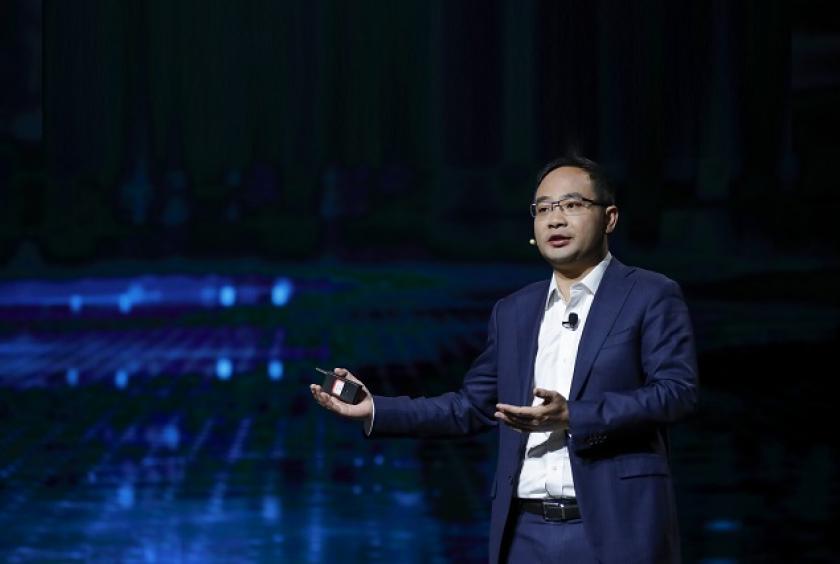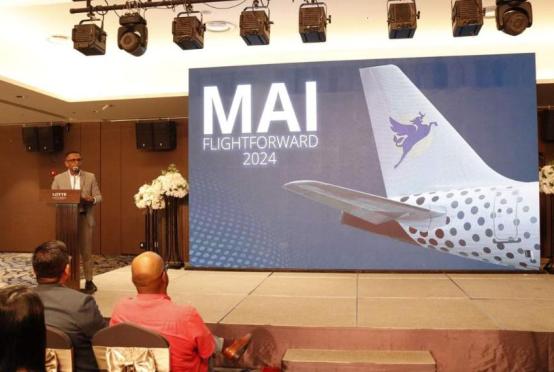
The lack of talent in artificial intelligence will no longer be an issue in the near future, as Huawei Technologies Co will invest more than US$140 million in AI talent education in cooperation with universities and scientific research institutes, said on Friday ZhengYelai, the firm’s vice president and president of cloud business unit, at Huawei Connect 2018 held in Shanghai.
Yelai released AI Developer Enablement Programme, which will push for Huawei’s collaboration with developers, partners, universities, and research institutions, on the last day of the event.
“We will use it to build a better development ecosystem that can support AI resources, platforms, courses, and joint solutions. We aim to work with partners to build an affordable, effective, reliable, and inclusive AI ecosystem,” he said.
The programme includes developing AI courses, publishing text books, supporting scientific research and talent training, helping universities and research institutes build AI colleges and institutes, assisting in building AI labs, participating in AI-related programmes held by the Ministry of Education, helping universities train AI teachers, supporting the participation of universities into Huawei cloud open community, building a platform for communications between universities, research institutes and Huawei AI experts, offering universities and research institutions the computing power and technology on Huawei's AI platform, and promoting scientific research and exploration in the AI field.
At present, the firm has started developing AI talent at eight universities in China_ Institute for Interdisciplinary Information Sciences of Tsinghua University, the University of Science and Technology of China, Zhejiang University, Shanghai Jiao Tong University, Nanjing University, Southeast University, Xidian University, and the Institute of Acoustics of the Chinese Academy of Sciences.
Yelai said the firm would support AI developers through a 20-hour free introductory training, a three-week beginner AI training camp, AI developer contests and innovation incubation camp for top talent to help transform research and development success into commercial applications.
Additionally, the Chinese technology giant will provide its partners by building joint solutions based on its AI computing and development platforms to promote AI application in multiple industries, setting up an AI promotion alliance to build a joint innovation lab and providing 1000 sets of free development environments, including development modules and boards.
“Firstly, we will provide more than 20 partners with expert resources, supported joint solutions, and extra support for AI product launches and technical implementation. We will also share market resources with partners to further expand the market,” he said.
At the event, Yelai also released Model Arts, the firm’s faster and more inclusive one-stop AI development platform to accelerate the industry development with developers.The platform involves data labeling and preparation, model training, optimisation, and deployment as well as delivers end-to-end AI application development.
“It is a faster and more inclusive AI development platform than any other AI development platform out there. We believe AI developers will appreciate how quickly it starts, completes training, and deploys models,” he said.
Data labeling and preparation is time-consuming in AI development, accounting for almost 50% of the time required. Model Arts has a built-in data governance framework for data labeling and preparation during AI development. The framework implements iterative training to reduce the volume of data that needs to be manually labeled, which improves the efficiency of data labeling and preparation by 100-fold.
“It integrates multiple optimization technologies, especially cascade hybrid parallel to halve the duration of training required for a given model, dataset, and set of hardware resources,” he said.
Given that various AI technologies are incorporated intothe platform, it will support enterprises in sharing data and models, aiming to improve AI development efficiency, build AI development capabilities, and protect AI assets, said Yelai.















